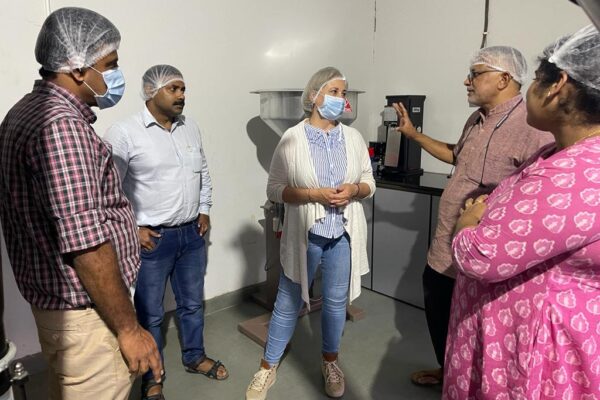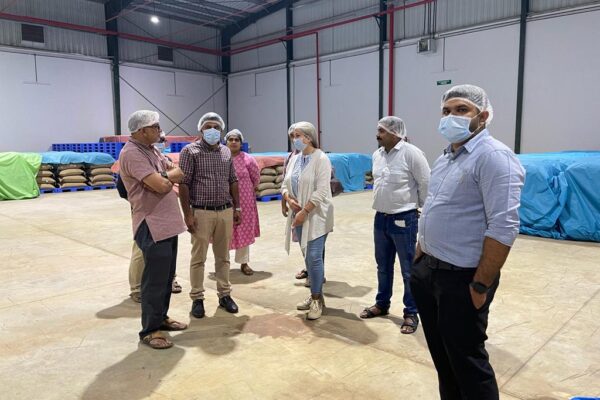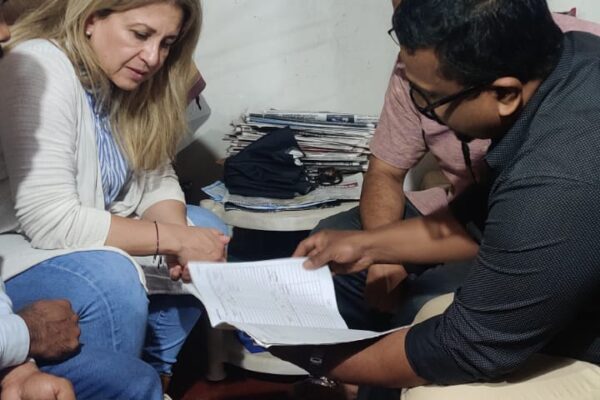A pivotal aspect driving this collaborative approach with Fairtrade Germany was the increasing demand for robusta coffee in the European market. This surge is attributed to the growing trend of blending robusta and arabica coffee varieties, prompted by the escalating prices of arabica coffee varieties. In addition, tea has always been on high demand in European Market. To deepen its understanding of Fairtrade’s impact on organisations and foster stronger commercial relations within the coffee supply chain, Fairtrade NAPP recently hosted Ana Maria, the supply chain manager from Fairtrade Germany for a pre-harvest talk where there was a need to comprehend the realities of production and supply chain logistics to bridge the existing gaps and establish more robust connections between producer organisations and buyers was recognised. This proactive initiative will not only enhance visibility for Small Producer Organizations (SPOs) but also facilitate a crucial exchange of information, strengthening communication flow across supply chain actors. The objective would be to add value to the system, ultimately benefiting both producers and buyers.

As part of this endeavour, she visited three distinct producer organizations in India: Forum For Fairtrade Organic Agri Betterment (FFOAB), Kerala Agro Foundation for Fair Trade Enhancement (KAFFE) and The United Nilgiri Tea Estates Co. Ltd. The focus of these visits was to gain firsthand insights into production methods and the marketing challenges faced by these organizations to foster a deeper understanding of the Fairtrade impact on the ground. During her visits to the producer organizations, she also took a keen interest in assessing all premium projects. This strategic move aimed to gauge the impact created by Fairtrade initiatives and gather valuable insights that could be communicated to buyers and other marketing partners. By understanding the intricacies of these projects, she sought to further enhance the transparency and credibility of Fairtrade practices.
Empowering Women Coffee Farmers:
In Wayanad, Kerala, Ana Maria visited fields belonging to two producer organizations, where she encountered a particularly inspiring story. One of the fields was tended by a marginalized widow farmer, who sustained herself through integrated coffee farming. Moved by her resilience, she collected her story for publication on the Fairtrade Germany website and newsletter to highlight the transformative power of Fairtrade in supporting marginalized individuals.
Addressing Concerns and Facilitating Collaboration:
Ana Maria played a pivotal role in clarifying doubts raised by the producer organizations regarding FLOCERT clauses and criteria. The producers found her visit immensely useful due to a clearer explanation of Fairtrade processes. Notably, she observed a significant difference in the cultivation practices of Robusta coffee in Kerala, where integrated farming is prevalent compared to the monocropping prevalent in Latin American countries. This observation led her to consider the sustainability and livelihood security benefits of integrated farming for coffee producers.
Future Steps and Collaborative Initiatives:
Post the insightful visits, the Fairtrade NAPP team engaged in discussions with Ana to chart out future steps. She has arranged pre-harvest calls with coffee producer organizations in India, emphasizing ongoing collaboration. Additionally, Ana reached out to the Hired Labour Organizations (HLO) in the Tea sector and committed to connecting with them after discussions with buyers. Her proactive approach includes collecting details of premium impact from tea producers to share with potential buyers.
This initiative exemplifies a commitment to proactive collaboration and understanding within the coffee supply chain. The efforts to bridge gaps, explore sustainable practices, and highlight the impact of Fairtrade initiatives demonstrate the dedication to fostering a more transparent, equitable, and resilient coffee industry. As Fairtrade continues to play a crucial role in shaping the future of coffee production, such collaborative initiatives are paramount for ensuring the well-being of producers and the sustainability of the industry.







